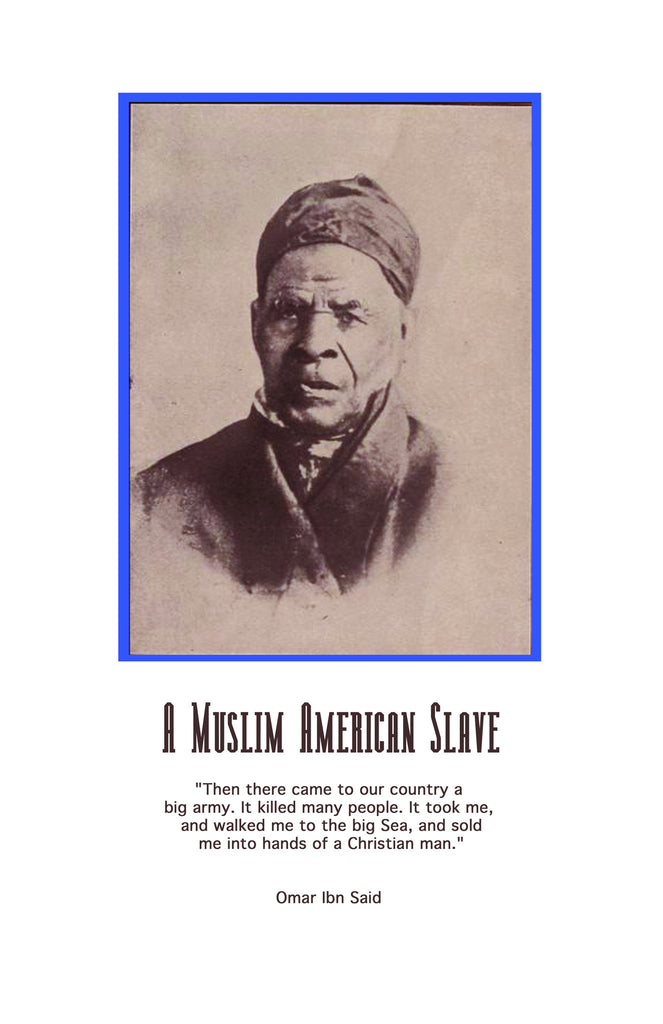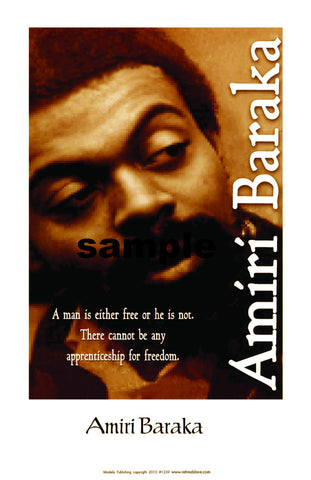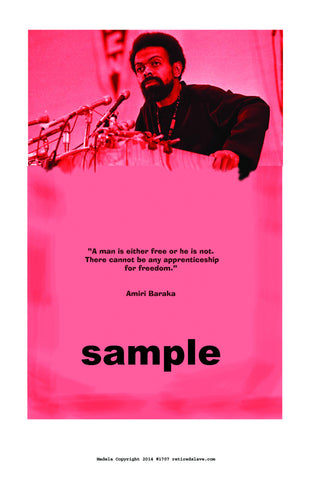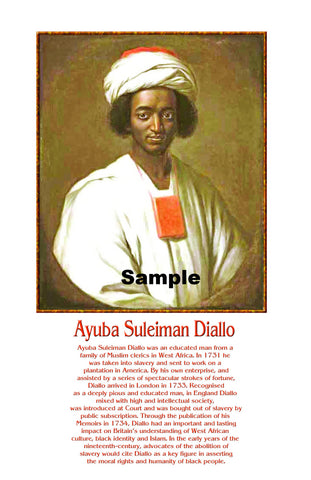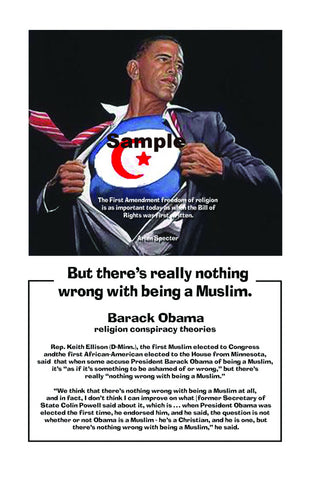Omar ibn Said #1472
$ 8.00
Caption from poster__
Omar ibn Said
Born in present-day Senegal in Futa Tooro, a region between
the Senegal River and Gambia River in West Africa, to a wealthy
family. He was an Islamic scholar and a Fula who spent 25
years of his life studying with prominent Muslim scholars in Africa.
In 1807, he was captured during a military conflict, enslaved and
taken across the Atlantic Ocean to the United States. He escaped
from a cruel master in Charleston, South Carolina, and journeyed to
Fayetteville, North Carolina. There he was recaptured and later
sold to James Owen. Said lived into his mid-nineties and was still
a slave at the time of his death in 1864. He was buried in Bladen
County, North Carolina. Omar ibn Said was also known as Uncle
Moreau and Prince Omeroh
Also known as “Uncle Moro” or “Moreau,” Omar Ibn Said was born in Northwest Africa to a wealthy, and possibly royal, family. In 1807, a year before the Constitution made the international slave trade illegal, he was captured as a result of African warfare, sold to slave traders, and shipped to Charleston, South Carolina. Fleeing his abusive South Carolina master, he fled north and eventually arrived in Fayetteville, where he was captured while praying in a church. Later purchased by James Owen, the future president of the Wilmington and Raleigh Railroad and major-general of the militia, Said, a house slave, openly condemned the “wicked” slave trade and the actions of “depraved” masters. According to contemporary magazines, however, he lauded Owen for his benevolent paternalism and Christian charity. Said lived out the rest of his life in Bladen County and died in 1864. Since 1995, when his autobiography, the only American slave narrative known to exist in Arabic, was found, Said has gained national attention. Many scholars contend Said was a devout Muslim until his death. Said, however, made a Christian profession of faith and joined the Presbyterian Church. Said could have written approximately fourteen Arabic manuscripts.
